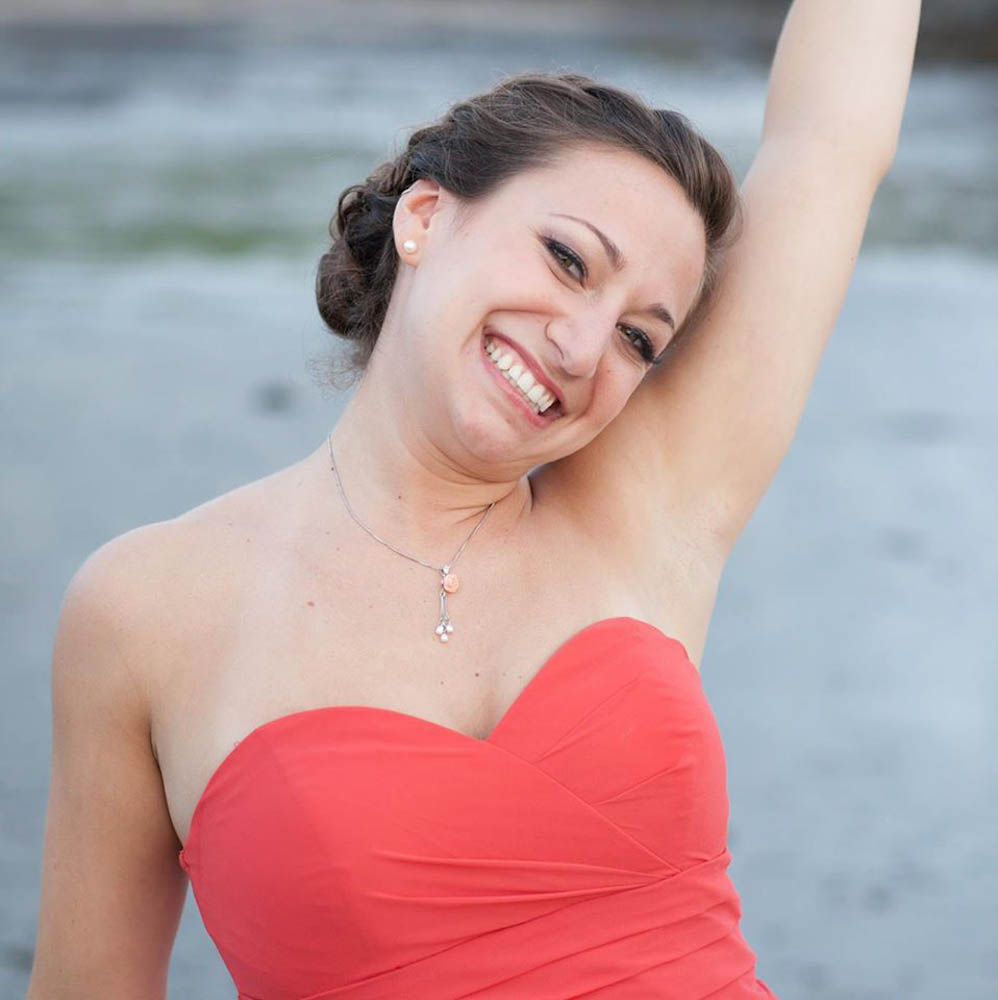By Becky Sail
At age 22, I was diagnosed with a rare sarcoma called aggressive angiomyxoma – say that 10 times fast. When my parents and I got the news we asked the doctor, “Is it cancer?” He responded, “That is a complicated question.” He said he had never seen it before and I needed to get to New York or Boston – there were only 250 reported cases in the world, ever.

Fortunately, my job relocated me to Boston and I was able to choose Dana-Farber for my care, which I am so grateful for.
I have always faced my life with courage and spunk. But this curve ball made me dig really deep and re-define my strength. When you have a rare cancer, you often feel forgotten because there is minimal or no research to guide you.
Here are the top five things I’ve learned throughout my journey:
1. Give yourself a minute.
Any cancer diagnosis is hard to process, but a rare cancer is a whole other ball game. I was always so hard on myself when I would have bad days. Give yourself a gosh darn minute! I mean days, months, years! It took me about four years to say “I have cancer,” and five years to start using my story to help others (which also helped me). When you have a rare cancer, you may not go through the treatments other cancer patients are having, and you may even look completely normal, but guess what – you are still fighting the fight.
2. Get Smart.
Or, as they say in Boston, Get Smaht. When I was first diagnosed, I couldn’t even spell the name of my tumor! Now, I have doctors asking if I am in the medical field because I know so much. The day I got the pathology back, I went home and started Googling. As you rare friends out there may know, when you are as special as we are, Google doesn’t do much good. Instead, tap into your own resources. Give your friends and family assignments. Before I knew it, my sister compiled a whole binder of research by using medical journals and databases she and her friend had access to, and my parents lined up appointments with the specialists I needed to see.
Read more:
3. Like your team.
You have a right to feel comfortable with your doctors. You must trust them, be able to ask questions, and feel like you are working together. You deserve the best. When I say best, you may think that means the most credentialed doctor for your disease – yes that’s great – but you need to find the best fit for you.
4. Do you.
You must take care of yourself, both physically and emotionally. I have always been a busy bee, a go-getter, a giver; so after my diagnosis I actually had to make a conscious effort to take care of myself. Make time for activities that support your well-being. Take a look at your life, and what and who are in it. That whole “cancer puts things in perspective” thing? Listen to it. And let’s face it, there will be times when you feel alone. Find out what makes you feel less alone. Is it a support group? Talking to a friend who is going through cancer too? Crying and screaming it out? You have to feel, to heal. Find what makes you feel.
5. Blaze your own trail.
Write your own story. Every day research in cancer is progressing. I see my doctor every four months, and each time she has a nugget of new information for me. Ask for this information. Probe. Stay curious and connect your doctors with each other. That is how you will continue to re-define your story. Be the “strategic planner” for your cancer.
Becky Sail is co-chair of Dana-Farber’s Patient and Family Advisory Council. Follow her blog.

Comments are closed.